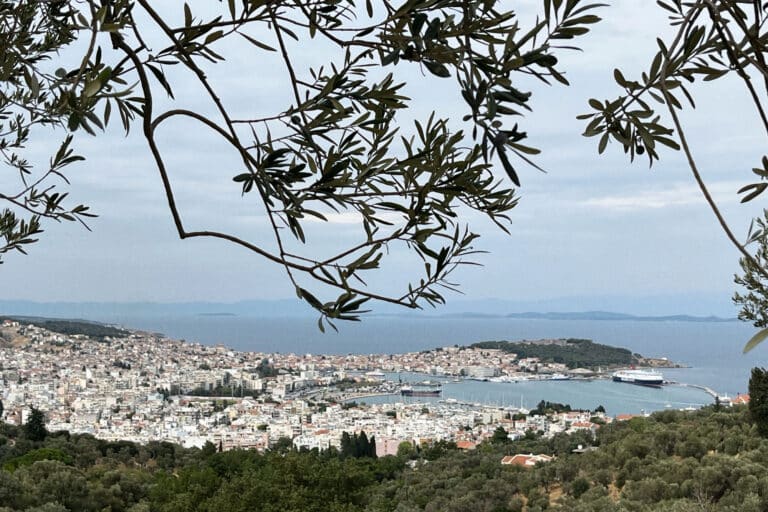by Benjamin Krauß
Krauß participated in CPT’s first ever German language delegation in cooperation with the German Mennonite Peace Committee (DMFK). Another German language delegation will visit the Treaty 3 area in Canada next April.
In September, our group of mostly German Mennonites participated in a silent vigil with Women in Black. The Women in Black are Israelis, including Holocaust survivors, who have protested the Israeli occupation of Palestine by gathering at the same spot in West Jerusalem at the same time every Friday since the first Intifada. They hold signs in the shape of a hand bearing the slogan “End the Occupation” in Hebrew, Arabic, and English.
Many of us felt uncomfortable taking part in the vigil because of German history. We encountered animosity from Israeli passers-by, which we expected, and we responded to insulting gestures, shouting and even aggressive youth by smiling and silently praying.
Then came the greatest challenge put to us – how could Germans, responsible for the Holocaust and the extermination of six million Jews, dare criticize Israel?
An angry Jewish American confronted us and asked accusingly: “Where do you come from?” My colleague stuttered, “Germany.”
“From Germany?!?!” he shouted. “These people come from Germany!” He kept screaming at us and at all the cars stopped at the traffic lights.
I felt paralyzed. His reaction was the thing I feared most during my stay in Palestine/Israel.
Although the Holocaust happened almost 70 years ago and I personally had nothing to with it, wasn’t he still right? Are there not other issues more appropriate, less historically loaded, for Germans to protest?
Several Israelis told our group that we Germans should stop treating Israel as a special case. We should denounce the human rights violations of the occupation as such and not justify them with the Shoah (Hebrew word meaning “catastrophe,” referring to the Holocaust).
This response was helpful, but I still had a troubled conscience. We asked the Women in Black what they felt.
One of them said, “You’re our friends and you’re standing with us in solidarity. You haven’t just come here with your own agenda, demanding something. You came and looked for Israelis whom you could support. The oldest amongst us Women in Black are German Jews who had to flee the Nazis. Now we are living here and protesting the occupation. The man who attacked you does not even live here, and yet he thinks he knows who’s allowed to criticize Israel and who isn’t. It is terribly embarrassing for us to have such people as him here in Israel.”
I will continue to ask myself what I as a German can say and do about the Israeli-Palestinian conflict and what I can’t. But these brave Israeli women have helped me overcome a large part of my guilt complex.



